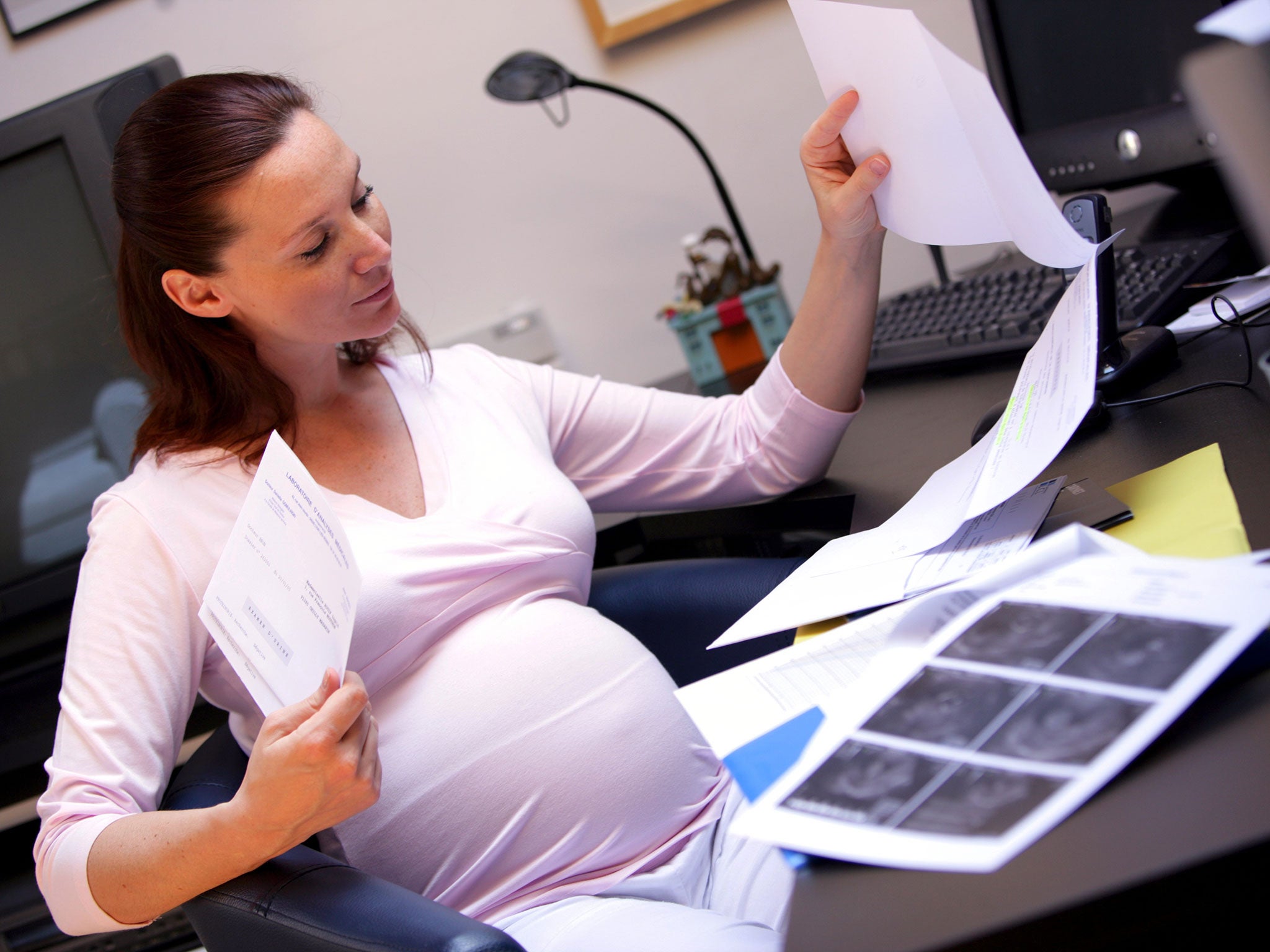Most women face discrimination at work after falling pregnant, study shows

Working women suffer “derailed” careers after becoming pregnant, with six out of 10 complaining of facing discrimination as a result of joining the "mummy track", according to new research released today.
Millions of new mums believe they are denied work opportunities and forced to prove themselves after returning to work – with many sidelined in the office. Three quarters of those polled reported their employer had been less interested in their career after they became a mother, while two thirds felt their boss had a negative perception of working mothers.
Nearly half said they were made to feel guilty for taking maternity leave and six in 10 felt their career options were limited as soon as they announced they were pregnant. The research into the experiences of more than 2,000 working mothers was commissioned by law firm Slater & Gordon, which represents hundreds of women fighting maternity discrimination across the country each year.
"We hear troubling stories from mothers every day about how they were mistreated after returning from maternity leave and have found their careers derailed as a result of being on the ‘mummy track’,” said Kiran Daurka, a lawyer at Slater & Gordon. "Some employers don't seem to value mothers in the workplace at all and we hear from women who are sidelined from the minute they announce their pregnancy.”
45 per cent of women find themselves offered less senior roles or opportunities, and eight per cent are demoted on their return from maternity leave. Three quarters said they felt there was a perception that mums wouldn’t be ambitious and that their boss didn’t think they were as capable once they had children. Fear over losing their job drives many women to go back to work just weeks after giving birth – with one in three back at work after three months.
Ms Daurka added: "Women often don’t realise how widespread the issue is and how many women have similar experiences. In our experience many women that do raise a formal complaint will end up leaving and signing a confidentiality agreement as part of the settlement terms.”
Despite greater rights at work, with an extension of statutory maternity leave and pay, the right to request flexible working and paid time off for medical appointments, discrimination against new mothers remains. A survey of 500 employers by the law firm, released today, reveals nearly half of bosses would not be willing to hire a mum for a senior role and 38 per cent admitted to being reluctant to hire mothers for any position. They cited concerns that women would not be as committed, would be unwilling to stay late and would want more time off.
More than 9,000 pregnancy discrimination claims have been brought against British employers since 2007. And in response to mounting concerns over the prejudices which persist, the government has given a £1m grant to the Equality and Human Rights Commission to research the full extent of the problem and its impact on society.
Case studies: On the wrong "mummy track"
Holly Richards, 34, from Derby [her details have been changed], said: “I have worked for two companies which made my last two pregnancies hell. The first company I was pregnant with my son. It was a financial company. The moment I told them I was pregnant, their attitudes to me went from nice to demeaning very quickly. They told me I only took the job for health insurance so I could have a baby. They treated me so badly and made me so miserable that I had my son a month early.
"I suffered from toxaemia and bell’s palsy, all due from stress at work. The second job was three years after my son, I was working as a secretary at a catholic church. In the midst of my pregnancy the priest I was working with was placed in another parish. In that time another priest was assigned. He treated me badly, even commented on the size of my boobs and told me wear maternity shirts that went up to my neck. I was harassed and treated badly.”
Samantha Bovey, 28, from Basingstoke [her details have been changed] said: “As soon as I found out I was pregnant, my boss and coworkers started treating me differently. I was discriminated against and they always kept me out of the loop. When I had my child and went on leave, none of my co-workers tried to contact me to keep me updated. When I came back, I was treated poorly and felt like I missed out on things. I never got promoted, and I am still treated poorly.”
Subscribe to Independent Premium to bookmark this article
Want to bookmark your favourite articles and stories to read or reference later? Start your Independent Premium subscription today.

Join our commenting forum
Join thought-provoking conversations, follow other Independent readers and see their replies